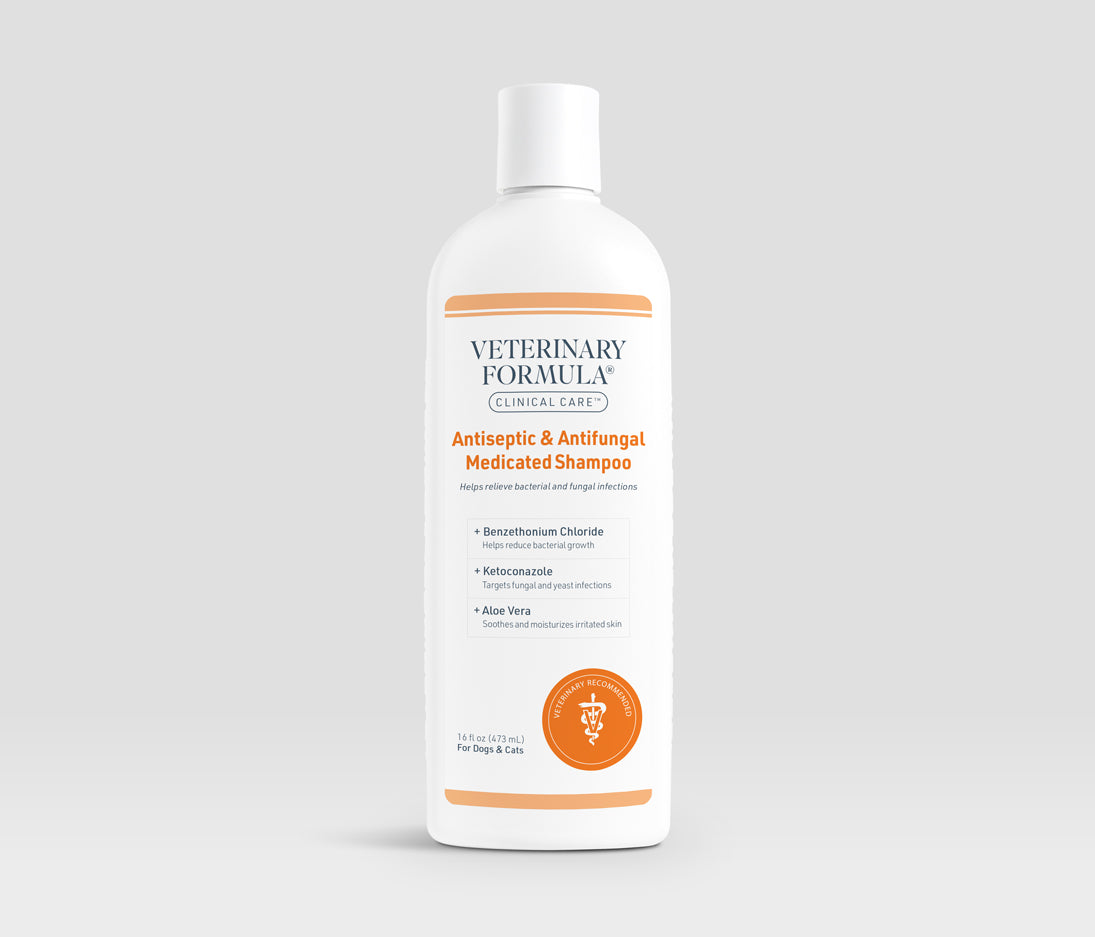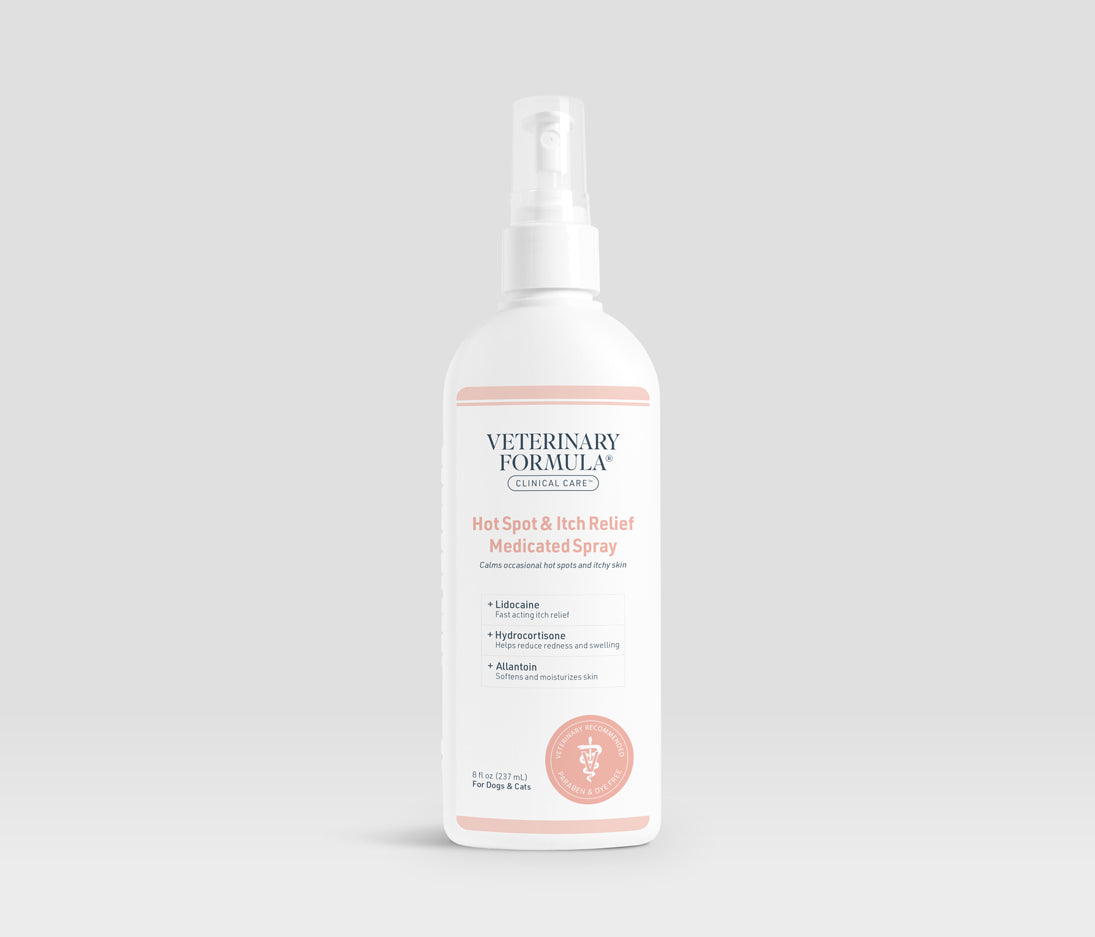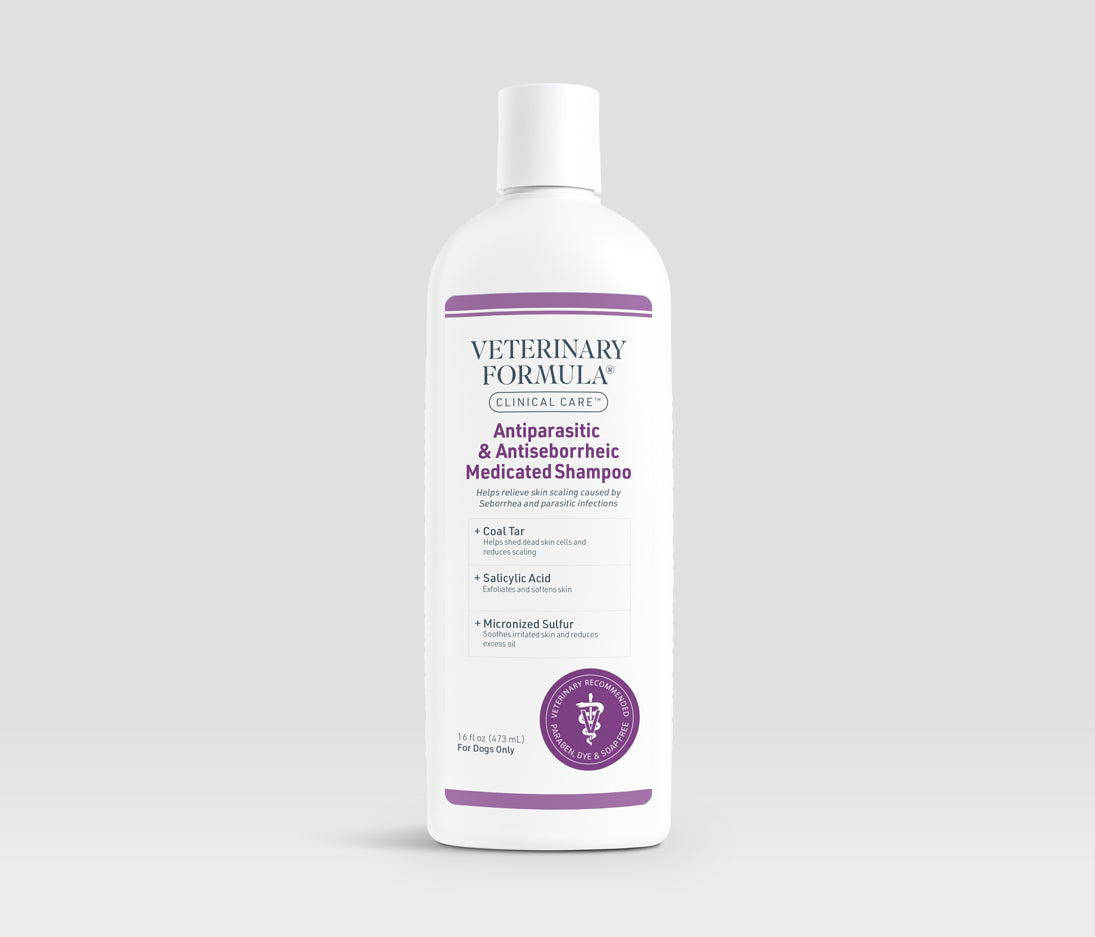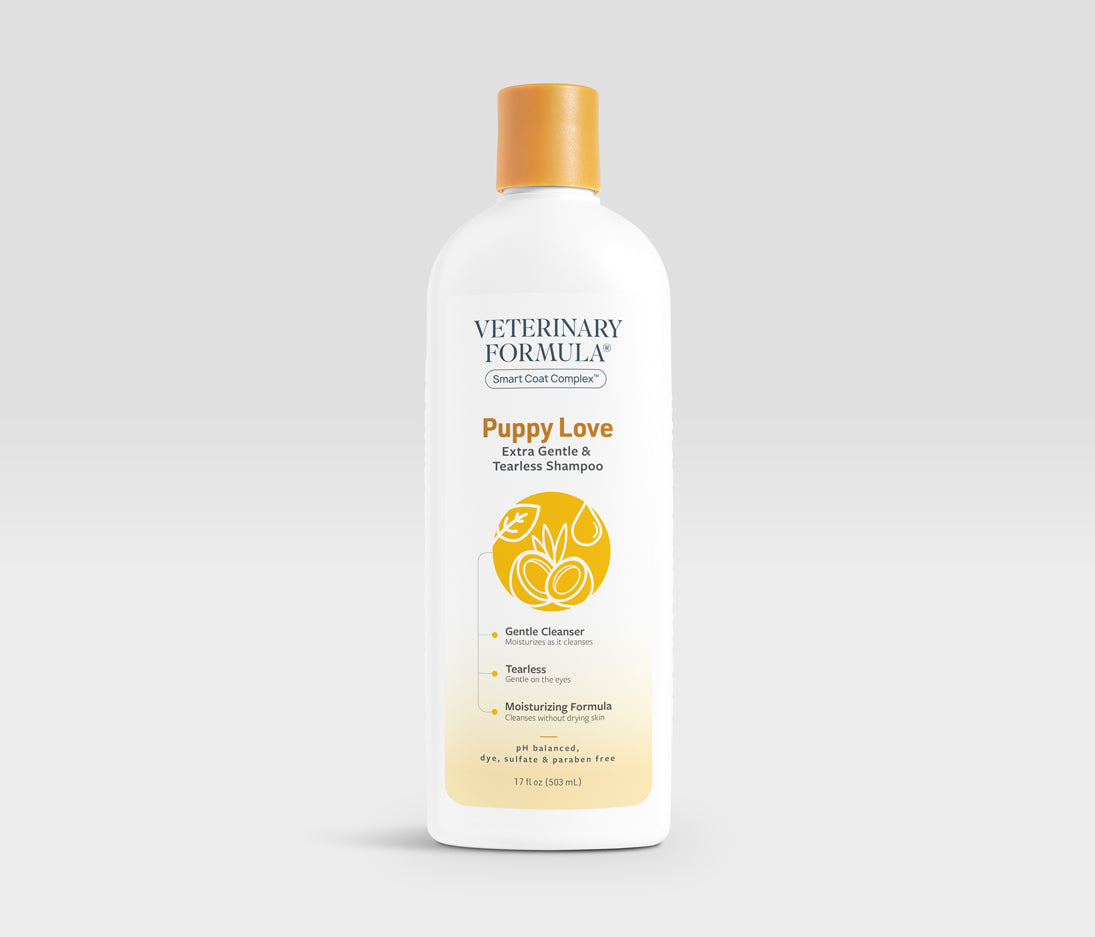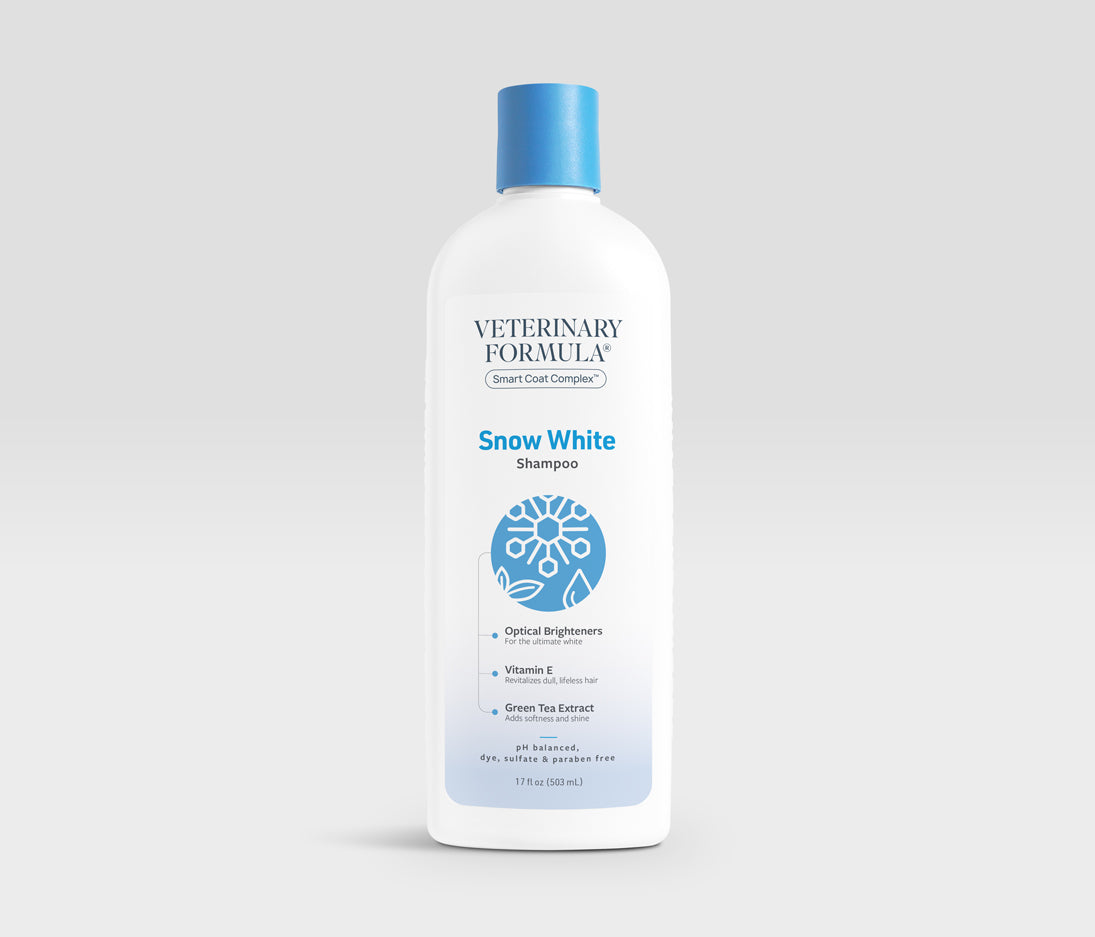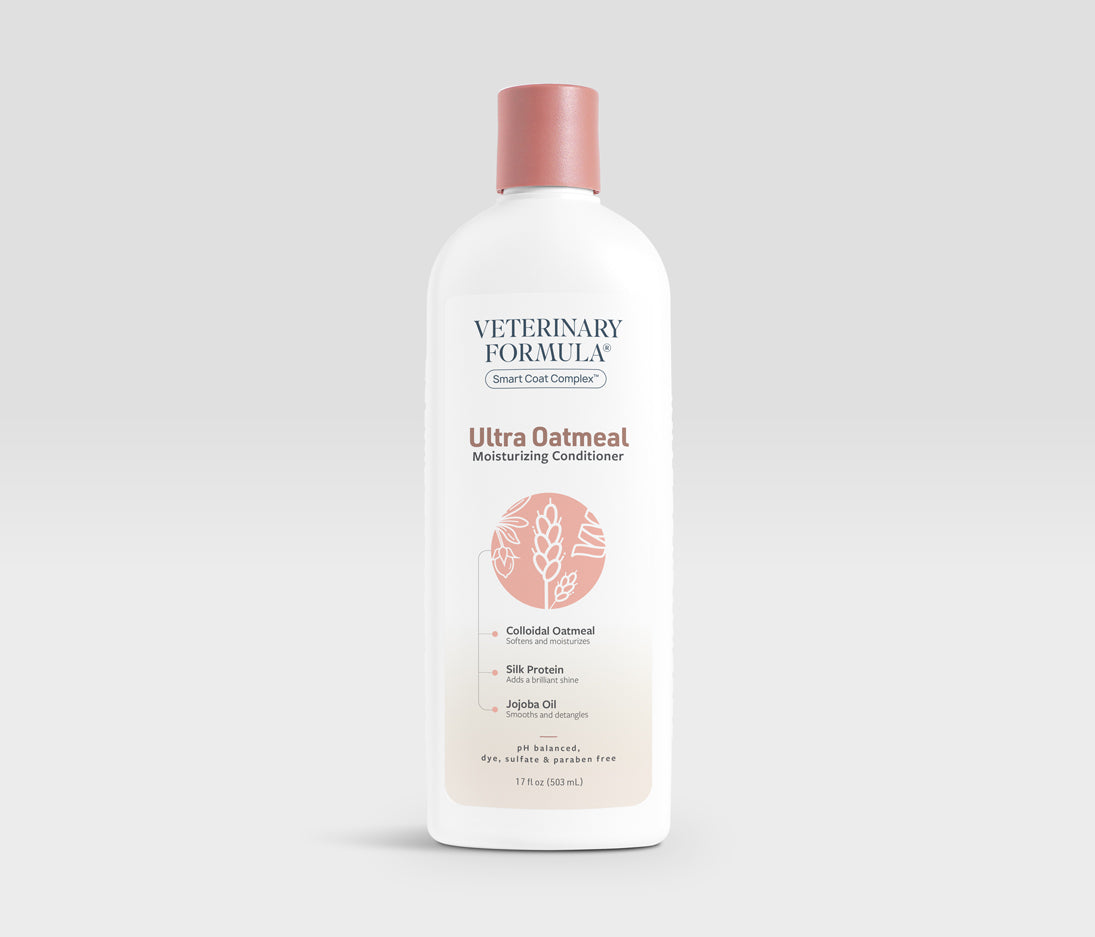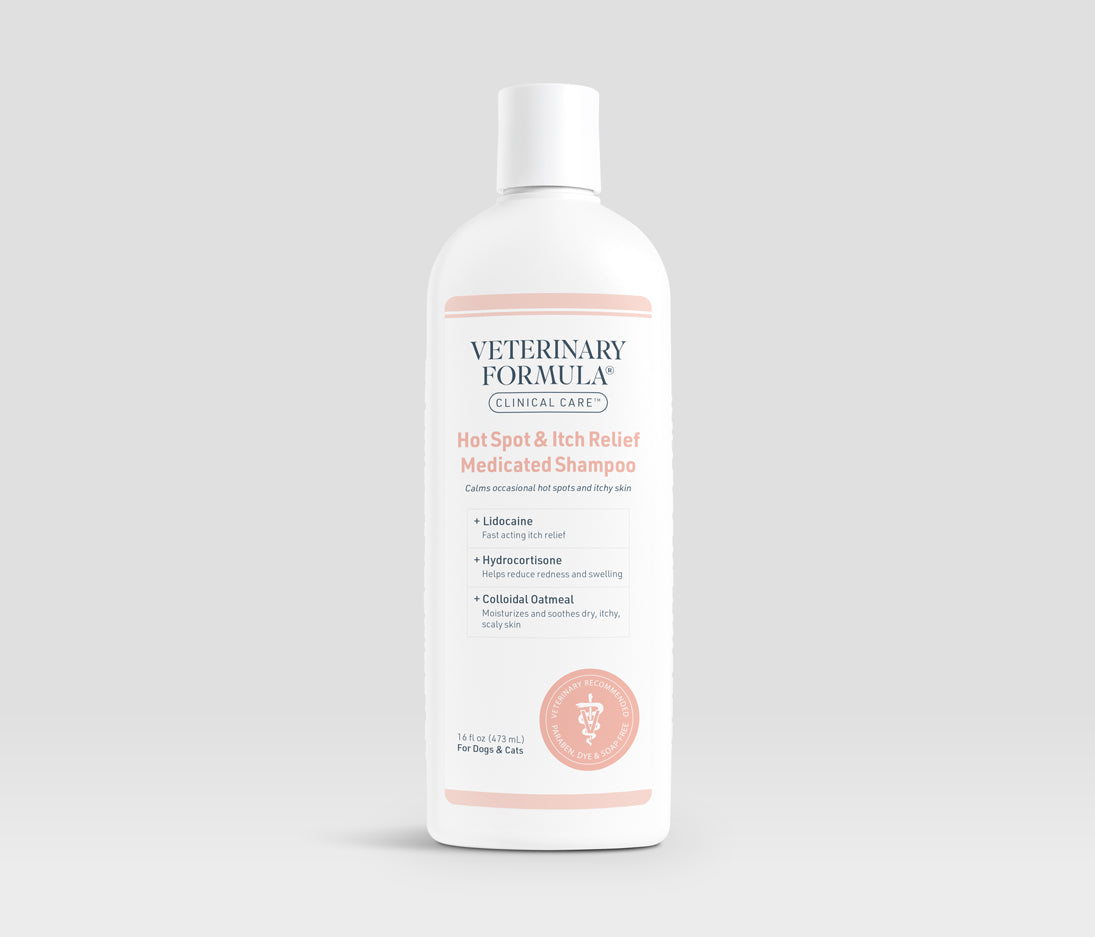Life for your pup is all fun and games. Until the scratching starts. And while the occasional itch is normal, excessive scratching, dry skin and hair loss are often symptoms of any number of common dog skin problems you may have to deal with at some point in your dog's life.
Some are easily treated. Others, while not serious, might be permanent. Some can even become life-threatening.
Knowing what to watch out for is the first step in keeping your dog happy and healthy for a long time. To help you be prepared, here is a list of some of the most common dog skin problems, with symptoms of what to look for.
(This list is meant for informational purposes only. For an accurate diagnosis of what's wrong with your dog, contact your veterinarian if you notice any of these symptoms.)

Dog Skin Conditions: Hot Spots
Hot spots are one of the most common dog skin problems dog owners have to deal with. Primarily because any number of conditions can cause them.
According to Fetch by WebMD, a hot spot is a "red, wet, irritated area that arises from persistent chewing, licking, scratching or rubbing."
You'll know a hot spot when you see it. First, because your dog won't leave it alone. And second, it'll be unsightly and uncomfortable looking. They can be found anywhere on your dog's body, but they're most commonly seen on the head, chest and hips.
Hot spots can be the result of any of the below common dog skin problems. And while figuring out the root cause of the hot spot is the best way to get rid of them, you'll also want to treat the hot spot so that it doesn't get any larger or become infected.
(Try Veterinary Formula Clinical Care's Hot Spot & Itch Relief Medicated Shampoo or Hot Spot & Itch Relief Medicated Spray for quick relief of hot spots.)
A quick note about hot spots. They're not always caused by dog skin problems. Dogs will bite and chew at an area that hurts. For instance, if a physical irritant, like a rose thorn or porcupine needle, is embedded in your dog's side, that could cause her to lick or bite at it enough to cause a hot spot. Check for a physical cause if you notice a hot spot developing.
Dog Skin Conditions: Dry/Flaky Skin
Dry, flaky, often itchy skin is another one of those common dog skin problems that's usually more of a symptom than a root problem.
In addition to a number of medical conditions (allergies, hormonal imbalance, bacterial infections), factors such as cold temperatures and/or dry air, dehydration, parasites and even excessive bathing can cause your dog's skin to become dry and flaky.
It's harder to spot dry, flaky skin on dogs with longer fur. Other signs of dried skin you can check for include dandruff and hair loss.
Some dog breeds, like the hairless Chinese Crested or Shar-Peis (which have skin that folds onto itself), are prone to having dry skin.
Dog Skin Conditions: Allergic Dermatitis
Allergies are a leading cause of skin problems on dogs.
Like humans, dogs can have allergies to inhaled environmental triggers such as pollen, dust, grass and animal dander, as well as to food. (Many food allergies are accompanied by an upset stomach or vomiting.)
Dogs can also have allergic reactions to things their skin comes into contact with like shampoo, soap and laundry detergent.
Additionally, some dogs are allergic to the saliva in flea bites, making a flea infestation even worse for your pup.
For most dogs, allergies manifest as dry, irritated, itchy skin. Other skin-related symptoms of allergies to look for include hives, scabs, missing patches of fur, and red, inflamed skin.
(Ask your vet about using Synergy Labs' Dog Wash Itch-Relief Cream to help your dog deal with allergy-related skin itchiness.)
Several breeds are prone to allergies and therefore more likely to have skin problems. These include, but are not limited to, American Bulldogs, Labrador Retrievers, American Pit Bull Terriers and Dalmatians.
As with any outbreak of these dog skin problems, you should always check in with your veterinarian for next steps, even if you suspect an allergy.
Keep in mind that allergic reactions are a function of the immune system, or rather an overactive immune system. When left untreated, allergies can weaken the immune system making your dog more susceptible to other threats. Because allergies in dogs can be difficult to treat, talk to your vet about adding an immunity boosting supplement if you think your dog has allergies.
Dog Skin Conditions: Parasites
Along with allergies, parasites are the most common cause of skin problems in dogs. These can include fleas, ticks and mites.
Your dog can pick up any one of these parasites while out and about. But other than ticks, which you can see, you won't notice fleas until they're large in number. And mites are nearly invisible.
But you will see your dog scratching and biting herself. A lot. Which in turn may cause hair loss and skin lesions, which need to be protected from infection. Other symptoms of parasites can include dandruff, head shaking (particularly for ear mites), scaly looking skin, bumps, and redness.
(If you're already seeing fleas jumping on your dog, give your pup a bath with Veterinary Formula Clinical Care's Flea & Tick Shampoo for relief you'll both enjoy.)
Dog Skin Conditions: Skin Infections
Skin infections are another common dog skin problem you should watch out for.
These can include: yeast infections, ringworm, folliculitis and impetigo.
Yeast infections are caused when something triggers your dog's body to grow more yeast on his skin. (A small amount of yeast on your dog's skin is normal.) Hot, humid weather is a common cause of yeast infections. But they can also be caused by other skin conditions, like eczema or as an allergic reaction to a medication, like antibiotics. Signs of a yeast infection in dogs include scratching, hair loss, licking, odor and a change in your dog's skin color.
Ringworm, despite its name, is a fungal infection that infects the skin. It causes circular-looking patches of skin inflammation and hair loss.
Folliculitis is a result of a bacterial infection of the hair follicles. It causes sores, bumps, hair loss and scabs on the skin. Harder to spot on long-haired dogs, folliculitis can also cause a dull coat and shedding that reveals scaly skin underneath.
Impetigo is a common skin problem in dogs that's most often seen among puppies less than one year old. Signs of the condition are small bumps filled with pus, which can break and form crusted circles of scaly skin.

